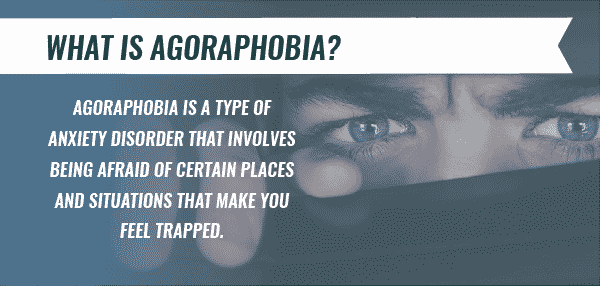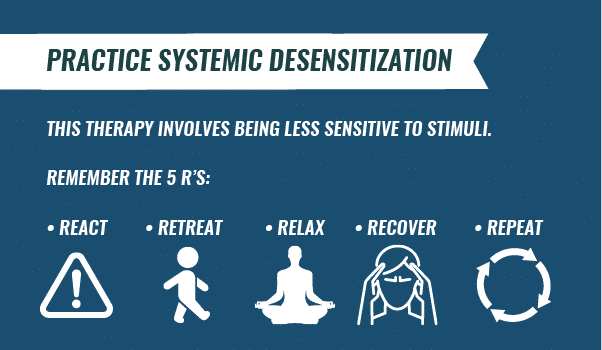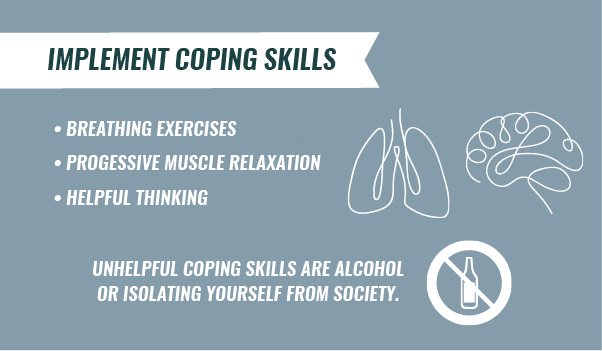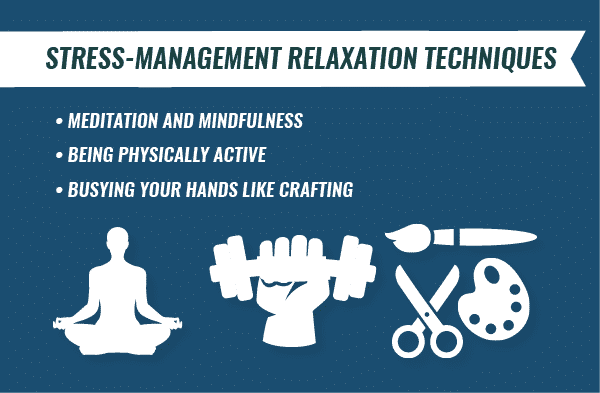Learn how to cope with agoraphobia in healthy, productive ways with these 5 tips.
Agoraphobia is a type of anxiety disorder and involves being afraid of certain places and situations that make you feel trapped. Along with a fear of feeling or being trapped, agoraphobia includes a fear of helplessness and embarrassment in public situations when a panic attack may occur
While it can vary for everyone, triggers of agoraphobia include airplanes or the use of public transportation, being in closed or open spaces, being in a line at a store, and crowds.
Agoraphobia is not necessarily the fear of the specific place but rather the fear that if something were to happen, escape would be difficult. People with agoraphobia frequently experience anxiety about the potential of having a panic attack in public.

On a guest post on HealthyPlace.com, contributing writer Kellie Jo Holly shared her experiences with agoraphobia. She described it as living in a constant state of dread. According to the author, agoraphobia led her to feel like there was something wrong with the world and when she went into public, she was inviting that negative presence into her life.
Coping with agoraphobia can be difficult. It often leads people to avoid going in public at all, especially in areas where there are crowds. Learning how to overcome agoraphobia can also be a challenging process because it usually requires confronting fears.
While people may look for how to overcome agoraphobia fast, it’s not an overnight process. With a combination of medication and psychotherapy, it’s possible to improve your quality of life when you have this anxiety-related disorder.
1. Practice Systemic Desensitization
Systemic desensitization for agoraphobia is one option that may help you. Systemic sensitization therapy involves being less sensitive to stimuli that produce anxiety. You work toward your goals in a step-by-step process.
Someone doing desensitization therapy might begin with one tiny step and then they gradually move toward confronting situations that cause greater levels of anxiety.
As someone is doing systemic desensitization, it’s recommended they remember the five Rs:
- React
- Retreat
- Relax
- Recover
- Repeat
Doing desensitization therapy will typically include relying on someone else for support. As it is a gradual process, it’s important to be patient with yourself.

2. Implement Coping Skills
There are various other coping skills for agoraphobia that you can practice. It may take some experimenting to find the coping strategies that work best for you.
You can create a formalized anxiety plan that indicates how to cope with agoraphobia and outlines how you’ll deal with specific situations as they arise. Some ways people successfully cope with agoraphobia include:
- Breathing exercises, which is a specific example in which you work on slowing your breathing when you’re in situations where you experience panic or anxiety
- Progressive muscle relaxation, which is a systemic way to physically release tension in your body
- Helpful thinking, which focuses on changing how you talk to yourself
It’s important not to turn to unhealthy coping mechanisms if you have agoraphobia. This could include using substances like alcohol or isolating yourself from society.

3. Stress-Management Relaxation Techniques
Some of the stress-management relaxation techniques you might consider are similar to the coping mechanisms named above, and there are others as well.
Making a plan for handling anxiety-evoking situations can help. Your plan can outline the specific relaxation techniques you will use in different possible scenarios. Some people also find that meditation and mindfulness help them manage their stress and relax when they are in distressing or uncomfortable situations. Being physically active can be beneficial, as can busying your hands with something such as crafting.

4. Address Underlying Issues
Even when you practice ways to deal with the symptoms of agoraphobia, it’s still important to recognize and deal with the underlying factors that contribute to it. The underlying causes of agoraphobia can stem from a variety of factors. Some of the possible agoraphobia causes include:
- Environmental stress
- Having a panic disorder or other phobias
- Childhood and learning experiences
- Trauma, abuse or stressful life events
- Having an anxious temperament
- Having a close relative with agoraphobia
- Differences in parts of the brain that control anxiety and fear responses
So, what triggers agoraphobia? The answer is that agoraphobia can manifest differently for every person. As you go through therapy for agoraphobia, you are likely to work on the underlying issues that lead to the condition. With appropriate treatment, if you do encounter triggers, you will have more control over your response.
5. Seek Professional Help
Agoraphobia is a serious mental health condition, and it can significantly impact a person’s life without treatment. Without agoraphobia treatment, complications can include:
- Depression
- Substance abuse
- The development of other mental health disorders
- Problems at school or work
- Difficulty with relationships
- The inability to leave home
Even though there are measures you can take on your own, seeking agoraphobia help from a professional can create significant improvements in symptoms and overall quality of life.
Cognitive behavioral therapy (CBT) is one of the most common forms of psychotherapy used to treat agoraphobia. One specific type of CBT, exposure therapy, is especially helpful in treating phobias.
Along with therapy, medications such as selective serotonin reuptake inhibitors (SSRIs), may be used as part of a comprehensive treatment plan. If you’re struggling with agoraphobia or other anxiety disorders, contact The Recovery Village to learn more about treatment programs.


Holly, Kellie Jo. “How Agoraphobia Affects My Life.” HealthyPlace. March 7, 2012. Accessed January 11, 2019.
Croft, Harry MD. “Systemic Desensitization for Treatment of Agoraphobia.” HealthyPlace. July 2, 2016. Accessed January 11, 2019.
The Recovery Village aims to improve the quality of life for people struggling with substance use or mental health disorder with fact-based content about the nature of behavioral health conditions, treatment options and their related outcomes. We publish material that is researched, cited, edited and reviewed by licensed medical professionals. The information we provide is not intended to be a substitute for professional medical advice, diagnosis or treatment. It should not be used in place of the advice of your physician or other qualified healthcare providers.